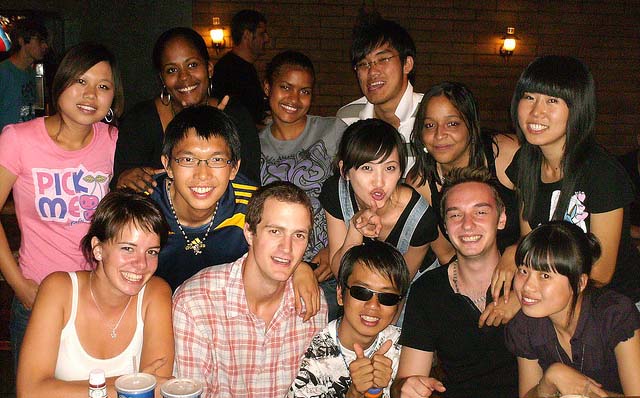Good diet, adequate rest and regular exercise are as important to your performance in class as studying and understanding course material. Numerous studies tell us that you can’t think of these practices separately – like a three-legged stool, they support each other and you. Lack of rest robs you of the ability to process and understand what you’re studying and the ability to recall during tests. So, pulling that all-nighter won’t help you, it can only hurt you.
I learned this the hard way, I once stayed up until three in the morning studying for a math exam. I was alert the whole time pumped up on adrenalin and caffeine, but I wasn’t learning anything. I got a seventy-six on my exam. I could have gone to bed at ten thirty and done that!
Staying up late wasn’t the only mistake I made.The sugar and caffeine I consumed kept me awake alright but they also caused me to “crash” later, just about the time I was taking my exam. The tiredness and fatigue came over me so quickly, I almost fell asleep in the test. This is definitely not the way to go. You’ve got to put the right foods in your body to work for you or you’ll pay the price at the worst possible time.
The last critical piece here is exercise. As little as fifteen minutes a day can help keep you refreshed and ready to study productively. An uninterrupted cycle of study and work with no chance to stretch your muscles and get your blood flowing wears on you down. Every hour you keeping going becomes less productive; you accomplish less, learn less and are less prepared to use what you once knew on your tests. Taking time for brief period of exercise is time well spent.
Here are a few tips to help you get the most out of your study time now and in the future:
- Plan your preparation for final exams now so you have enough time to study and stay healthy – be honest with yourself about what you can do, not what you hope you can do.
- Schedule in study breaks so you have time to eat a healthy meal and walk around a bit to loosen up your muscles and refresh your mind – you will learn and retain more of what you study.
- Remember, you can’t study or work all day and all night and expect to be successful at either – that’s just wishful thinking.
- Use the study techniques I shared with you throughout the GradeUP! Challenge – they’re all available on the GradeUP! Challenge Week-by-Week page.
A Special Thank You
To thank you for your participation in The College in Four Years GradeUP! Challenge, I am offering a free E-book version of College in Four Years: Making Every Semester Count, from Wednesday, April 22 through Friday, April 24. Click this link or simply log onto Amazon.com, search College in Four Years by Granville Sawyer and download the kindle edition for free.
I’d like to know what you thought about what I’ve shared from the book during the GradeUP! Challenge. Be it good or not so good, I’d greatly appreciate your leaving a review on Amazon, and if you’re a member, Goodreads. To leave a review on Amazon just click the customer reviews hyperlink just under the book title and that will take you to a page where you can leave your review. For Goodreads just access your profile, list College in Four Years as Read and leave me a review.
Thank you in advance for your review and for your participation in the GradeUP! Challenge. If you would like information and intermittent news about my upcoming events, giveaways, webinars, new resources or books, I invite you to join my Email List.









